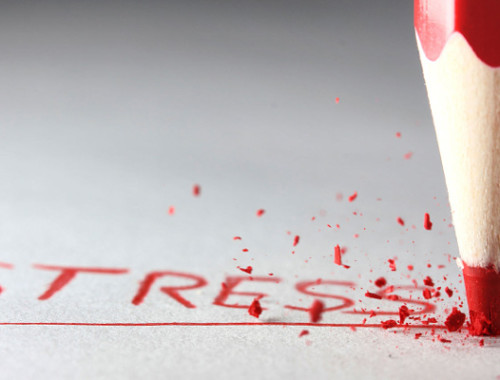I don’t know about you, but nothing scares me more than the idea of losing control of my thoughts. Of all the diseases out there, to me, dementia is the most terrifying. The thought of forgetting who my family is or, worse, forgetting who I am is a real fear.
Recent studies conducted on both animals and humans have found a “strong link between chronic stress and the development of neuropsychiatric disorders, including depression and Alzheimer’s disease”. This is because chronic stress can lead to atrophy of the hippocampus, the part of our brain critical for longterm memory.
The dangers of too much stress are nothing new. It’s been well known that stress negatively impacts the body, but for some reason, this hasn’t been taken all that seriously by many. We are a chronically overworked, overstressed society with no signs of slowing down. We’ve got to do it all, regardless of the sacrifices. Hopefully, these new studies will be the wakeup call we need.
Stress: The Good and The Bad
There are two types of stress we experience. The first is called eustress. This is the normal, short term stress that our body is well equipped to handle. Feeling anxious before a job interview or stressed over hosting your first family get-together are things your body is able to handle this with ease. It’s when your body experiences a prolonged activation of the stress response, called distress, that it can begin to impact the body negatively.
The good stress our body is built to handle is called eustress. Prolonged stress that negatively effects the body is called distress.
When we feel stress, fear or anxiety, our body reacts by going into what’s called the fight or flight response. Certain hormones are elevated, our heart rate increases; the body is ready for action. Remaining in this state too long or too frequently can have detrimental effects on the body, impacting our immune, metabolic, cardiovascular and neurological systems.
Here’s The Catch
Finding outlets for stress is crucial. This is the thing; you can’t just be really good at one part of your health. They are all interconnected. If you eat garbage, but exercise everyday, you’re still putting yourself at risk for disease. If you eat well but run on 2-3 hours of sleep every night, you are actually at a bigger risk of disease than most people who are eating poorly but sleep well.
The same goes for stress. You can eat right and exercise regularly, but if you’re body is constantly in a fight or flight response, it will wear down your defenses, leading to illness and potentially dementia. A balance of work and play has to be found. Finding ways to reduce your stress load or to better manage the stress you have are critical to your long term health.
The Good News
There is some good news in this, though. It seems that the damage caused by chronic stress may not be completely irreversible. Exercise helps to stimulate the hippocampus, enhancing memory.
Dr. Mah, who published strong evidence that stress and anxiety can actually accelerate the conversion of mild cognitive impairment to full-blown Alzheimer’s disease in 2014 stated, “Looking to the future, we need to do more work to determine whether interventions, such as exercise, mindfulness training and cognitive behavioral therapy, can not only reduce stress but decrease the risk of developing neuropsychiatric disorders”.
The Take-Away: There needs to be a greater focus on stress reduction in our society. We are a chronically stressed nation, viewing relaxation as “pampering” rather than part of our health protocol. Hopefully, further research like this will help people to understand the importance of finding balance in life.





No Comments